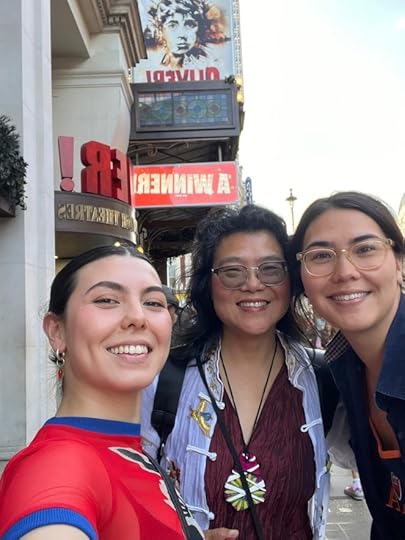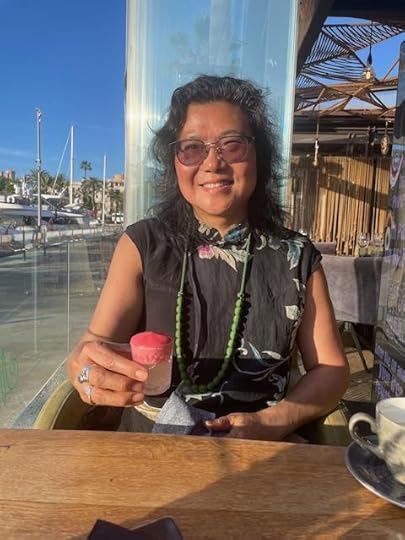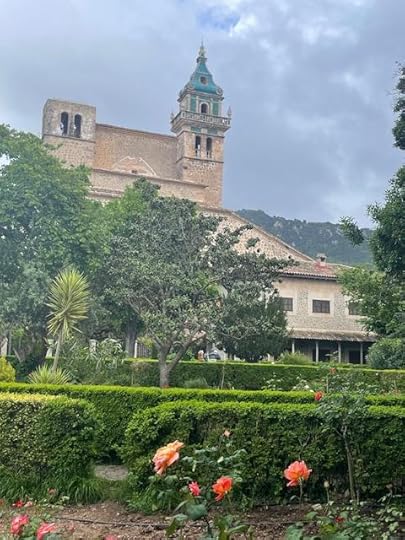Lijia Zhang's Blog, page 6
June 18, 2025
China and Russia
Here’s the link to my latest column in SCMP about complex relationship between China and Russia. My interest in Russia started in its literature and it deepened after I lived and travelled extensively in the Central Asia. As usual, anyone interested in the full text, please get in touch.
https://www.scmp.com/opinion/china-opinion/article/3314329/china-russia-relations-power-speaks-louder-friendship
June 11, 2025
Oliver!
A Tale of Two Dodgerettes
The musical Oliver! launched the acting career of my elder daughter, Mei, back in 2008, when she was a sprightly eleven and full of mischief—perfect qualifications, as it turned out, for playing the Artful Dodger. It was a dazzling local production staged, quite grandly, the People’s Liberation Army Opera House in Beijing. Yes, you read that right—Dickens via West End, channeled through a socialist opera house. One might call it a cultural mash-up of revolutionary proportions.
I sat in the front row on opening night, tears hot in my eyes—not because of Oliver’s plight, mind you (bless his little cockney soul), but because Mei simply stole the show. The moment she stepped on stage, it came alive.
Fast-forward to last night: my younger daughter, Kirsty, ever the organizer, rallied us to see the Matthew Bourne–co-directed revival of Oliver! at the Gielgud Theatre. Let me tell you, it was glorious. Critics have dubbed it “musical theatre at its best,” and for once, I agreed. There was inventive staging, including a rotating set that would have impressed even the most jaded theatre-goer, an audience-hugging thrust stage, and choreography during “Consider Yourself” that could only be described as riotously joyful.
Naturally, both girls know every lyric by heart (Kirsty played a street urchin—a non-speaking role, though apparently not a non-politicking one). As “Consider Yourself” rolled out, they sang at full volume, swaying in their seats. I, forgetting most of the lyrics, did my best to hum supportively.
What fun we had. As is always the case when I’m with my daughters, there was laughter in abundance. Over a pre-show dim sum dinner, the girls regaled me with tales from their early stage days—particularly the Machiavellian maneuverings of stage parents, who lobbied aggressively for their children to be upgraded from “urchin number six” to “urchin with hat.” Ah yes, even among the ragamuffins, there was a hierarchy—and backroom politics to match.
Oliver! is on now at the Gielgud, and if you get the chance, do go see it. Whether you’re a theatre aficionado or just someone with a soft spot for singing pickpockets, it’s a rollicking good time.
June 5, 2025
Admont monastery
Admont Monastery Library – The Eighth Wonder of the World? Quite Possibly.
“Wow!” Or perhaps, “OMG!”—these are the most likely words to escape your lips as the doors swing open and you step into the breathtaking library hall of Admont Monastery.
Late Baroque in style, the space is nothing short of stunning. First, its sheer scale: 70 metres long and 14 metres wide, making it the largest monastic library in the world. Then, your gaze lifts to the magnificent ceiling frescoes by Bartolomeo Altomonte, which chart the stages of human knowledge and divine revelation in luminous detail.
Bathed in natural light, the hall dazzles with its white-and-gold palette, and is richly adorned with sculptures by Josef Stammel, including his dramatic and contemplative “Four Last Things”: Death, Judgment, Heaven, and Hell.
The library houses over 70,000 volumes in the main hall, and more than 200,000 volumes in total—a true sanctuary of learning.
In short, the Admont Monastery Library is a masterpiece that fuses architecture, art, and intellect. It’s nestled in a rocky mountain valley about three hours north of Vienna, in the Gesäuse region of Upper Styria. A journey well worth making—for the beauty, the books, and the awe.
May 29, 2025
Travel
Here’s my latest piece where I contemplate why we travel and how travelling has changed me and changed China.
As usual, if anyone interested in reading it, feel free to reach out.
May 17, 2025
Stretchy birthday
My birthday is a stretchy thing. One of my lesser-known talents is the ability to extend my birthday celebrations well beyond their expiry date. Last year, in honour of my big birthday, I managed to squeeze in so many overseas trips.
This year’s birthday wasn’t meant to be a big deal. Still, both of my daughters flew out to Palma to join me and we had fun celebrating together. They’ve now returned to their respective lives, but just as the party candles were cooling, my dear old friend Kelly landed yesterday.
Today, she whisked me off to a rather fancy restaurant called Sexy Kitchen, right on the promenade, mere meters from the sea, with a postcard-worthy view of the Cathedral. The reason? “To celebrate your birthday!” she declared.
And what a celebration it was. The food was sublime. The ceviche? Spot on. The Sexy Salad? Outrageously good, all zesty with passion fruit dressing. And the seafood pasta? Cooked to silky perfection.
All of this was enjoyed under the golden Mallorcan sun, in excellent company, with wine flowing and laughter echoing.
I’ll admit I was initially suspicious of the restaurant’s name. But now I can confirm — it is sexy. And my birthday is very stretchy.
So if you feel like inviting me out for dinner — in the name of continued birthday celebrations — please know that my calendar is wide open. Stretch away.
May 16, 2025
Bellver Castle
Bellver Castle
Bellver Castle is a 14th-century Gothic-style fortress built for King James II of Mallorca. Perched on a hill 112 meters above sea level, it offers sweeping views of Palma, its bay, and the surrounding landscape. The name “Bellver” means “beautiful view” in Catalan—a fitting description. What makes the castle particularly distinctive is its unusual circular design, rare among European castles.
Originally built as a royal residence, the castle has served many roles over the centuries, including as a military prison. Today, it houses a museum.
When the sun is shining, everything looks better—and when you have your lively daughter with you, every trip is that much more enjoyable.
May 15, 2025
Chinese meal?
Many Chinese travellers have one unshakable rule: eat Chinese food, no matter where they are in the world. My sister and her family are prime examples. Last year, we spent Chinese New Year in Bali, staying at a luxury hotel, with infinity pool, villas, and even person butler. And what did her in-laws do? Cooked a Chinese feast every night! Meanwhile, Kirsty and I were dying to sneak out for some spicy sambal and authentic Indonesian cuisine.
Now here I am in Mallorca. Guess what I had for lunch? Chinese food! Mei, my older daughter, insisted. So I dutifully picked a place called Shi Shan Xuan, recommended by a Chinese bar owner who’s been living here for donkey’s years.
And you know what? She wasn’t wrong. The place is gloriously no-frills—think minimal décor, bright hospital-grade lighting, and zero ambiance. But the food? Absolute knockout. Every dish was spot on, but the star of the show was the slow-cooked shredded pork, served with soft bread rolls.
Who knew Mallorca would be where I’d find one of the best Chinese meals of the year?
May 13, 2025
Cathedral in Palma
The Cathedral of Santa Maria of Palma, commonly known as La Seu, is one of the most iconic landmarks in Mallorca. Towering above the city’s waterfront, this stunning Gothic church is both a place of worship and a masterpiece of architecture.
Originally commissioned by King James I of Aragon in 1229, the cathedral took nearly 400 years to complete—this was the first thing our tour guide told us the other day. It’s renowned for its soaring nave, intricate stonework, and its massive rose window—one of the largest in the world.
Inside, one finds unexpected contemporary touches, including a striking ceramic mural by Miquel Barceló in the Chapel of the Holy Sacrament, a bold contrast to the surrounding Gothic structure.
One particularly special feature is the Rose Window Light Show. On specific dates (around 2 February and 11 November), the morning sun shines through the main rose window and perfectly aligns with the opposite one, creating a breathtaking light effect known as the “Gothic Eye.” It’s something truly magical.
Speaking of which, when we visited the cathedral yesterday, we saw a woman cleaning the floor with a hoover. It was an ordinary enough scene, but oddly deflating—it momentarily stripped away the mystical aura of the place. Perhaps the sacred and the mundane coexist more closely than we think.
In any case, I loved the cathedral. It dominates the town’s skyline and stands as a proud symbol of Mallorca’s rich 
.cultural heritage
Beach day
A beach day today—finally!
Cala Major, just a short taxi ride away, isn’t exactly vast, but it makes up for it with soft, fine sand and the kind of turquoise water that looks like it belongs on a luxury travel brochure. The sun was out in full force, and so we all dived into the sea. The swim was glorious. Afterwards, we flopped down like happy seals and read in the sun.
Then came the massage lady. I guessed where she came from, judging from her outfit and her accent. “Are you from Qingtian?” I asked in Chinese. Her narrow eyes widened in surprise. “How did you know?” she asked, genuinely stunned. I chuckled—most of the convenience stores in Spain are run by Chinese folks from Zhejiang, particularly from a town called Qingtian. It’s like the Silicon Valley of hardworking shopkeepers.
Naturally, I treated myself to another massage. Why not? I’m still riding the high of my birthday—milking it for all it’s worth!
For the first time since arriving in the island, I truly felt like I was on a real holiday.
May 12, 2025
A charming village in Mallorca
Valldemossa is a picturesque mountain village tucked into the Tramuntana range in northwest Mallorca, about 17 kilometres from Palma. Yesterday, my daughter and I stopped there on our way back from Sóller.
Its fame, it seems to me, largely rests on a romantic footnote in history: the winter of 1838–39, when composer Frédéric Chopin and writer George Sand took refuge in the Royal Carthusian Monastery (La Cartoixa), a former Carthusian retreat.
Often hailed as one of the most beautiful villages in Mallorca, Valldemossa certainly lives up to its reputation with its cobbled lanes, rustic stone houses draped in flowers, and a tranquil charm set against the dramatic mountain backdrop. It’s a quiet delight to wander its narrow streets, lined with cafés, boutiques, and small galleries. Mallorca has more to offer than I realized!



